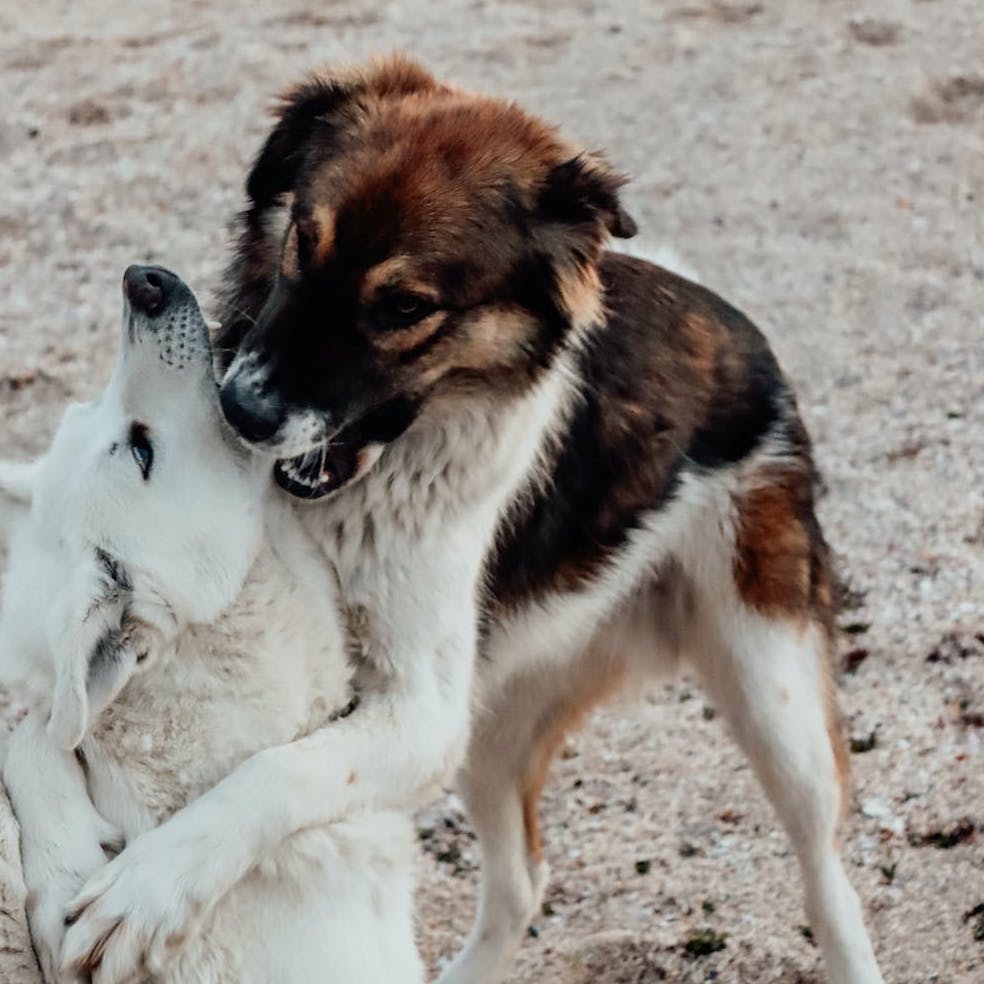- Total €0,00
Why some dogs bark at everything and how to stop it?
It is perfectly normal that a dog barks, but sometimes you just can’t ignore it anymore or put up with it, because excessive dog barking interferes with your daily life. If the dog barks excessively and immoderately, the dog wants to communicate something and signal something is bothering it more than usual. This is why we would like to get into this issue and explain why and when dogs bark.

Why dogs bark and excessive barking
Excessive barking is usually a behavioral issue that can get worse without proper intervention and training. But first, it’s important to understand why dogs keep barking, and how to know when barking turns into a problem. Barking is one of the main ways dogs communicate and you shouldn’t expect a dog not to bark at all. However, some dogs are prone to barking excessively. It may be whenever someone walks past the house, when it hears something moving in the neighboring yard, or any time a dog is around other dogs or people.
Also, bear in mind that some dog breeds, such as the German Shepherd, Chihuahua, Beagle, Dachshund and Alaskan Malamute, are more prone to excessive barking than others. Just like us people, every dog has its own unique personality, and some of them simply like to bark. If you are one of those people who struggles with a dog that is barking non-stop, first of all you need to understand some of the most common reasons for your dog’s tireless barking.
Seeking attention
Sometimes dogs bark to signal something to their owner and it is a way to get their attention. Most of the times, the dog uses barking to tell you it wants to go outside, play, go for a walk, that it is hungry or thirsty, wants a treat, or that it heard something unusual. When a dog wants to get your attention, its barking tends to be a long string of single barks with pauses between them. But be careful! If your dog is barking to get treats and it gets what it wants when it barks, this teaches it that tireless barking is effective.

Separation anxiety
Barking because the dog misses its owner is one of the most common reasons behind excessive barking in dogs. Dogs with separation anxiety will often bark continuously when they are home alone. This will generally be accompanied by destructive behavior such as chewing and digging, as well as repetitive movements such as running around in circles or along the fence. Compulsive barkers tend to bark just to hear the sound of their voice.
Territorial barking
Dogs tend to get very territorial, and barking is one of the most common ways of protecting their territory. This mostly happens when a stranger or another dog comes close to your home or his food, toys or people he likes. As the threat gets closer, the barking often gets louder. Your dog will look alert and even aggressive during this type of barking.
Feeling fear
In a dog’s world, attack is the best form of defense. So, if your dog becomes fearful about something, it might bark to alert you and scare off the potential threat. These barks will usually be deeper and may have a growl associated with them. They will also be fairly continuous and incessant. You can tell if your dog is afraid when their ears are pinned back and their tail is tucked between their legs.
Ready to play
If your dog barks every time it socializes with other dogs, then this barking is pretty normal, because it represents the dog’s way to greet other dogs and encourage playtime. You can easily recognize this type of barking if it is accompanied by a wagging tail and jumping.
How to treat excessive barking
Teaching your dog to bark less will take time, work, practice, and consistency. It can hardly happen overnight, but with proper techniques you can definitely make good progress over time. There are a few tips to remember when you start making an effort to control your dog’s barking. Bear in mind that shouting and a high-pitched voice stimulates your dog to bark more because they think you’re joining in. So, the first rule is to speak calmly and firmly, without yelling. Also, most dogs don’t know what you want when you’re shouting at them to shut up or be silent, so train your dog to understand one word – quiet.
Don’t forget that dogs have a lot of energy, and a tired dog is a quiet dog. If your dog barks when alone, tire them out before you go. Take a long walk or run, play ball or take a trip to the dog park before leaving. Also, remember that the longer a dog does something, the more ingrained it becomes. That means that barking can give dogs an adrenaline rush, which makes the barking pleasant. This is why you need to deal with barking problems as soon as possible.
Regardless of the type of dog you have, the key to changing your dog’s behavior is recognizing and addressing the real cause of barking. Once you know why your dog is barking, you can make lifestyle changes to prevent it and teach the dog to behave differently.


